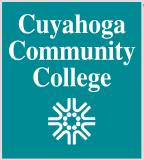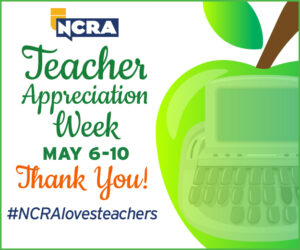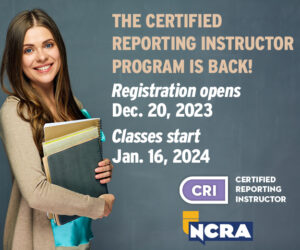By Dr. Marnelle Alexis Stephens
Growing up in a family of musicians, I was filled with a passion for music at a young age. I started taking piano and theory lessons when I was eight with the hopes of being just like my dad, who is a gifted guitarist and pianist. That didn’t happen. I would love to say that I was being hailed as the next musical prodigy, but it was clear that I was not going to be joining the New York Philharmonic any time soon.
Fast forward 20 years (perhaps a smidgen more), and I am learning to play those ivory keys again with gusto. What sparked this renewed passion? Court reporting.
Since joining MacCormac College five years ago, I have had the privilege of being drawn into this wonderful world. As the first college in the nation to offer a degree in court reporting, MacCormac is blessed to have a remarkably talented faculty and staff who are teaching and mentoring the next generation of stenographic court reporters and captioners.
When I ask industry professionals to explain the mental process of court reporting, they often liken it to learning another language and training to be a concert pianist at the same time. So it is unsurprising that many successful students have musical backgrounds as well as an aptitude for learning languages. I am truly humbled when my associates share their individual journeys from student to certified reporter. It takes utter immersion and the dedication of a star athlete to reach the necessary levels of peak performance. Just as practice is the foundation for athletic success, likewise it is the case for success in court reporting.
Students who have traditionally done well at MacCormac are those that eat, sleep, and breathe steno. They understand that if they are to finish court reporting school in a timely manner, cramming will not cut it. This is a hard concept to sell to some students. For this reason, as educators, we ought to observe, listen, and welcome their thoughts. They provide opportunities for all of us to learn and grow, and we can both mentor and learn from one another.
According to one of MacCormac’s court reporting student Brianna Uhlman, it is important to have discipline when it comes to practicing on the steno machine: “I dedicate two to three hours outside of class to practice. If I begin to get sloppy because I’m tired, taking a break gives some relief.” Uhlman suggested that the practice time factor is personal to every individual. She also shared a useful tip: Sometimes when it becomes difficult to keep going, she finds that rewarding herself for practicing helps.
Practice is a necessity, not an option. It is clear that most program influencers understand this, as demonstrated by their top findings noted in survey outcomes. The National Court Reporters Association Instructional Best Practices Survey Executive Summary, published on March 20, 2015, stresses that practice and speedbuilding are essential components of a court reporting education and have a strong bearing on graduation rates.
A state speed champion, national speed medalist, and past president of NCRA, Melanie Humphrey-Sonntag suggests that a maximum of four hours of practice time a day should prove beneficial for students. She advises students to be consistent and dedicated, stating that “the more you practice to cement your theory principles and muscle memory, the quicker you’ll progress and the more accurate a professional you’ll be.”
On top of this, NCRA suggests that in order to see positive student outcomes, program instructors need to ensure that students have access to continuous support for speedbuilding and actively intervene if they suspect outside practice hours are not being observed.
I suspect that program educators’ deeper concern is getting faculty to rethink the entirety of curriculum development and teaching in the midst of the long-standing debate about the length and frequency of practice.
If you’ve participated in recent discussions about court reporting curriculum development, inevitably you have witnessed the deliberations. Many seasoned court reporters argue that it’s essential for students to “practice, practice, and practice some more.” On the contrary, recent reporters share Brianna Uhlman’s sentiment in stating, “It’s not necessarily the amount of practice time that makes a difference, but the quality of your practice time that counts.”
While there are many schools of thought concerning the methods and how much time reporters should spend practicing, what is abundantly clear is daily, disciplined practice sessions leads to student success.
Leaders should think critically about how to deliver the structure that provides the greatest opportunity for achievement and the best outcomes for students.
I firmly believe that the purpose of systematically thinking about practice is not to establish a one-size-fits-all model for practice but simply to determine situationally what works to help students to achieve at their individual level. In my perfect world, learning, rather than practice or seat time, will be the core measure of progress, and students will be able to demonstrate in dynamic environments what they’ve learned from outset through to proficiency.
What’s more, I’m in accord with Humphrey-Sonntag’s assertion: “Practice does not end when you graduate. Most professional reporters, captioners, and CART providers continue to hone their skills through regular practice and continuing education regimen throughout their careers.” I assert that practice beyond school should be viewed not as a static, one-time experience but as a life-long journey of building one’s knowledge and skills.
As I reflect on my life-long journey toward piano mastery, I realize the importance and necessity to practice regularly. It was during my tenure at MacCormac College that I decided to try again. Witnessing the hard work and dedication of court reporting students gave me the inspiration I needed to take practicing seriously. At times, when I’m dragging to get to my instrument, I often think about the time and effort court reporting students are putting into practice and that gets me motivated. I have found my music again. I have court reporting to thank for that.
Dr. Marnelle Alexis Stephens (known affectionately as ‘Grace’) is chancellor and former president of MacCormac College. She specializes in higher education administration, ministry leadership, strategic planning, and turn-around management. Stephens can be reached at malexis@maccormac.edu.
















